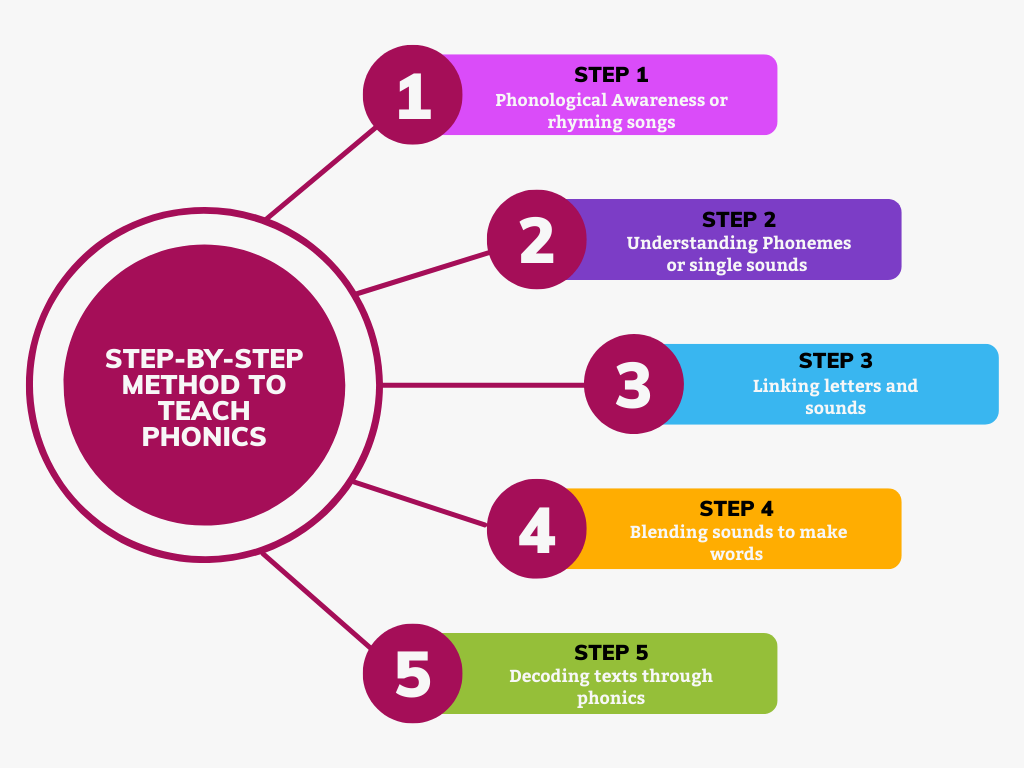How to teach Phonics

A Step-by-Step Method to teach Phonics sounds

Before reading the following step-by-step guide to teaching phonics at home, it is recommended to read the article, which introduces parents to the phonics letter sounds, to teach phonics themselves.

- Step 1: Phonological awareness or rhyming songs
- Step 2: Understanding Phonemes or single sounds
- Step 3: Linking letters and sounds
- Step 4: Blending sounds to make words
- Step 5: Decoding texts through phonics
Step 1: Phonological awareness or rhyming songs
Did you know?
Most phonics programs begin with teaching about Phonemes or single sounds.
However, research points out that the kids find it easier to throw themselves to larger units of sounds.
Pro Tip: Kids’ rhymes and songs are a great way to develop
Phonological awareness among kids.

Step 2: Understanding Phonemes or single phonics sounds
Have you ever heard of the International Phonetic Alphabet?
Kids should be taught about Phonemes or individual sounds under the IPA.
Additionally, the kids need to be introduced to the 44 sounds mentioned under the IPA for all the 26 letters or alphabets.
Pro Tip: Flashcards and relating unique hand gestures can support
phonics sound learning for kids.

Step 3: Linking letters and phonics sounds
If you ever thought that kids can naturally learn all the sounds for each letter,
Think again!
You will observe that most letters also have one or more associated sounds.
Once the kids have learned individual sounds,
They should be introduced to mapping Phonemes to Graphemes or written symbols for sounds.
Pro Tip: Playing games with Graphemes or written symbols representing a sound creates
Phonemic Awareness among kids

Step 4: Blending sounds to make words
In order to read words, kids must blend the sounds together to determine the word.
You must be thinking…
So, How are you supposed to do that?
Blending sounds to read words is the process of converting letters to sounds and
Thereafter combining them to recognize a word.
Pro Tip: Playing Oral Bingo games by Blending sounds or
Using Magnetic Letters and Puzzles enhances a kid’s ability to blend sounds effortlessly.

Step 5: Decoding texts through phonics
By now, your kids are acquainted with Phonemic awareness, Phonological awareness, and letters.
This sets the stage for them to employ sound-based decoding in order to derive context-based meaning for the word spelled by them using phonics.
So, why is it so useful?
That’s because it takes time to develop vocabulary and comprehension as compared to Phonics.
Your kid is all set to begin their reading journey Now!
Click the link below to Download the Free Phonetic app Now!







Responses